Guide To Spotted Lanternflies in Morristown, NJ

Spotted lanternflies are an invasive species introduced to the U.S. in 2014. Morristown, NJ is one of the many areas in which they have made an appearance. These insects can be found throughout Morristown and cause a great deal of damage to local crops. As such, it is important for Morristown residents to learn about their habits and how to properly identify them in order to help mitigate their spread and damage.
Why are spotted lanternflies in the United States?
The spotted lanternfly is an invasive plant hopper native to parts of South East Asia that was accidentally introduced into Pennsylvania in 2014. It is now found in most parts of the Eastern United States, including Morristown, NJ.
What do spotted lanternflies look like?
Spotted lanternflies are a light tan color with black spots, and their wings have a reddish-black band. The adults can be up to 1” long and have hind wings that are longer than their bodies. They also have a distinctive white “V” shape on the back of their heads.
Where can I find them?
Spotted lanternflies can typically be found on many different types of trees, including fruit trees. They are especially drawn to certain tree species such as Ailanthus, which is commonly known as the Tree-of-Heaven. They have also been found on grapevines and maples.
What kind of damage can spotted lanternflies cause?
Spotted lanternflies have the potential to cause significant damage to crops, trees, and other plants. They feed on tree sap, creating a sweet sugary substance that encourages the growth of sooty mold. This reduces photosynthesis and makes crops, trees, and other plants more susceptible to other pests. The presence of these secondary pests can damage plants by sucking the sap out of them or damaging the leaves. The nymphs also feed on numerous woody plants and cause significant damage to their leaves, stems, and even roots.
In addition to damaging crops and trees, spotted lanternflies can also spread plant diseases as they move from one host plant to another. Their presence in Morristown, New Jersey could potentially cause serious damage to natural habitats. Morristown residents should be on the lookout for these pests and report any sightings to their local pest control service immediately. This will help authorities monitor the spread of spotted lanternflies and take necessary steps to contain them before a major infestation arises.
Can a spotted lanternfly hurt you?
Spotted lanternflies are mostly a nuisance but, in some cases, they can also pose a potential health risk. Their excrement and honeydew cause surfaces to become slippery or even stained. If the honeydew is ingested it can lead to illnesses such as food poisoning or even stomach ulcers. In addition, their excrement and honeydew can promote the growth of mold on surfaces which could potentially bring negative health effects to those in contact with it.
Can spotted lanternflies bite humans?
No, spotted lanternflies cannot bite humans. They do not have the mandibles or mouthparts necessary to pierce through skin and feed on blood. However, their legs are covered in fine hairs that can cause skin irritation if a person comes into contact with them. The irritation is generally mild and temporary but can be more severe for people who are sensitive to insect bites.
How long do spotted lantern flies live?
Spotted lanternflies typically live for one year. In warmer climates, they may survive longer. They go through four different life stages: egg masses, nymphs, subadults, and adults. Adults lay their eggs in December or January on the bark of tree trunks and branches, which hatch into nymphs in late April or early May. As the nymphs feed on plants, they eventually reach the subadult stage, and then transform into adults in mid-July or August. Adult lanternflies typically live until late October or November when they die off naturally. In Morristown, it is important to keep a close eye on spotted lanternflies during this time period, as they can do a lot of damage to the local ecosystem.
Can lanternflies survive the winter?
Yes, they can. Spotted lanternflies have a fairly robust life cycle and are capable of surviving cold temperatures. In Morristown, the larvae overwinter within bark or soil, while the adults remain tucked away in sheltered areas such as hollow trees or buildings until warmer weather arrives. As long as Morristown has suitable hosts for egg-laying and temperatures that don't dip below freezing, the spotted lanternfly population will remain strong.
What purpose do spotted lanternflies serve?
Though they are considered a pest by many, these insects can actually be beneficial to the environment. Spotted lanternflies act as an important food source for native birds such as chickadees and woodpeckers. They also help spread pollen from flowers and trees which encourages pollination and the growth of new vegetation in Morristown. Additionally, their larvae recycle nutrients back into the soil, improving its fertility and quality.
Despite their positive attributes, Morristown, NJ residents should still take steps to protect their property from these invasive pests.
How to prevent an infestation
To prevent any potential issues, it is best to take steps to remove or control spotted lanternfly populations in your area. This can include disposing of infested plant material, destroying egg masses, treating woody plants with insecticides or traps, and utilizing natural predators. Additionally, it is important to inspect for any infestations before bringing items such as firewood into the area. By taking these steps you can help reduce the risk of the spread of this pest and protect yourself from any potential health risks posed
How do you get rid of spotted lanternflies permanently?
The most effective way to get rid of spotted lanternflies is to hire a Morristown pest control specialist who will be able to safely and effectively treat the issue. They can assess the infestation, create a tailored plan, and use environmentally friendly pest control methods to eliminate them for good. In some cases, chemical pesticides may need to be applied. However, pest control experts will always use the safest and least toxic chemicals available and advise you on any necessary precautions. Additionally, they can provide advice on how to prevent future infestations, such as removing standing water sources that can attract larvae and maintaining a clean home environment.
What to do if you see a spotted lanternfly?
- Immediately contact your local Morristown pest control specialist.
- Monitor the area for any further sightings or signs of infestation.
- Practice sanitation techniques such as regularly disposing of all organic material, keeping leaves and debris away from your home, and clearing out any standing water sources.
- Remove any dead trees or stumps near your home, as these can serve as breeding grounds.
- Finally, be sure to consult with a Morristown pest control professional for any further advice and guidance in dealing with this new pest.
Have more questions? Contact Delsea Pest Control today. We are happy to help!
